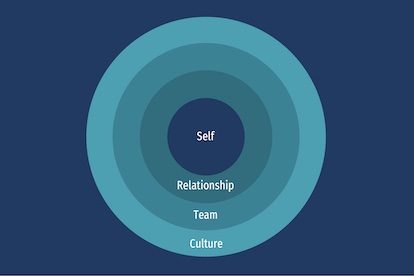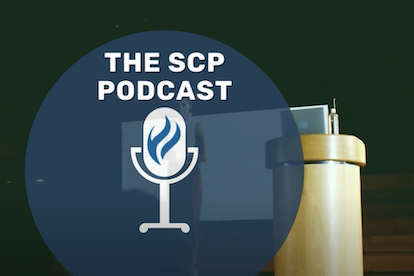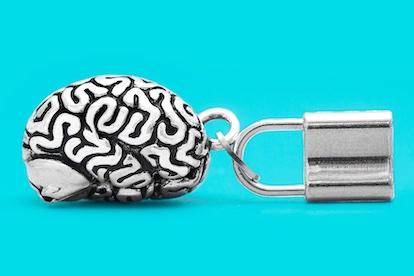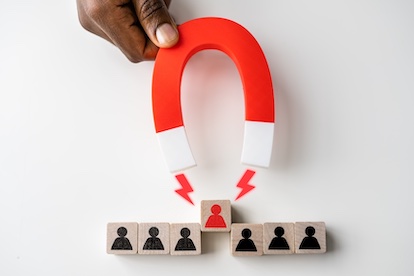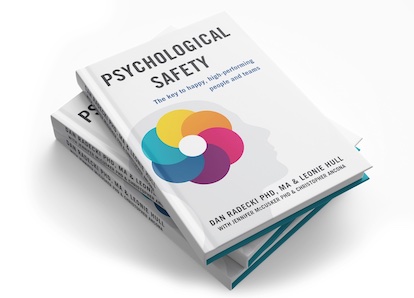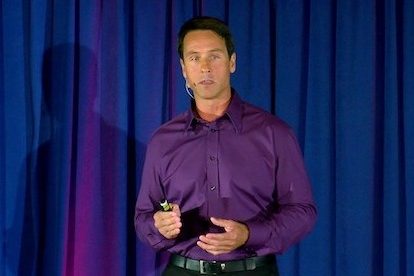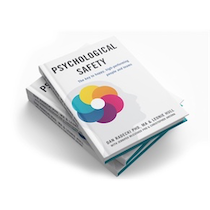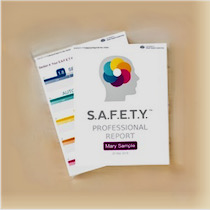Webinar-on-demand
Building a Culture of Psychological Safety
Join neuroscientist Dr Dan Radecki and Leonie Hull to learn how to build a culture Psychological Safety one brain at a time.
Blog
How To Deal With Emotional Triggers At Work: 4 Effective Strategies
Learn how to effectively manage emotional triggers at work with four proven strategies to enhance your psychological safety, backed by neuroscience.
Blog, Publications
Case Study: How to Navigate a Company Merger Without Losing Your Top People
Facing a merger and the challenges of the pandemic, Spec Furniture knew maintaining a strong team was crucial. Dive into the full story to learn how their strategic approach led to improved retention, better collaboration, and a record-breaking performance year.
Blog
The Imperative of Psychological Safety for Coaches, Consultants and Trainers
Learn why psychological safety is crucial for corporate success, with insights for executive coaches, trainers, and consultants on driving innovation and productivity in client organizations.
Blog
10 Brain Facts Every Leader Should Know
With decades of management experience and working, talking, and reading publications from neuroscientists, social psychologists, and others, here are 10 key things confirmed by science that can improve your management skills.
Blog
10 Things To Avoid When Implementing Psychological Safety
Implementing psychological safety in the workplace is crucial for fostering a culture of innovation and engagement. In this article, we unpack ten potential pitfalls to avoid, ensuring that your path is built on a solid foundation, strategically applied, and sustainable for the long term.
Blog
Individual Empowerment: The Key to Building Psychological Safety
In the realm of building psychologically safe teams, the focus often lies on group dynamics, with the leader bearing the responsibility. But is this approach fair, and more importantly, is this approach sustainable considering how our brain works, and how the psychological safety needs of team members can be so diverse and intangible?
Blog
Unlocking the Value of Diversity & Inclusion in the Workplace
Recent data reveals a concerning trend: many renowned companies like American Airlines, Nike, Twitter, Glassdoor, Wells Fargo, and Amazon have downsized their D&I departments. But why is this happening, and more importantly, how can organizations maximize the value of their D&I investments?
Blog
2024 Predictions – Psychological Safety, ISO Psychosocial Risk and more…
As we reflect on 2023, a few trends emerged from our clients and collaborators that will likely continue to grow as areas of focus in 2024. Psychological safety clearly stands out as a phenomenon that teams and organizations are trying to tackle in gaining a deeper understanding of what it truly is, its impact on health, wellness and performance – how to manage it.
Blog
Reflections on the Current Psychological Safety Landscape
Psychological safety is a buzz phrase these days largely as a result of Google’s research that revealed Psychological Safety as a key factor of their high performing teams. However, most Psychological Safety training is missing the mark with a focus on experiential or anecdotal information to build awareness in the hope that this will translate to building Team Psychological Safety. Unfortunately it is not that simple – to build and sustain Psychological Safety requires a systemic approach, one that builds awareness, skills, commitment, measurement and accountability across 4 levels: Self, Relationship, Team and Culture.
Podcasts
Toxic Environments: How to build trust & psychological safety on teams
Neuroscientist, Dr Dan Radecki & Julia Arndt discuss: Psychological safety and why it is so important; the link between psychological safety and stress; how to manage your triggers and build a resilient brain and how to build a resilient team.
Podcasts, Videos
Neuroscience in Leadership Consulting
Neuroscientist, Dan Radecki joins Society of Consulting Psychology (SCP) Marketing Chair Patti Weiter for a conversation about using neuroscience to enhance leadership.
Videos
The Downsizing Dilemma: How to maintain effectiveness during the process
Considering the economic issues that are facing the world these days, we thought to create this video in hopes of making a positive difference by considering Psychological SAFETY when downsizing.
Podcasts
The Psychological Safety and Resilience Connection
To build resilience, whether in a team or an organization, a person needs to build psychological safety for themselves … but how? In this talk with neuroscientist, author, and the co-founder of the Academy of Brain-based Leadership (ABL), Dr. Dan Radecki, we explore some of the brain-based principles that influence our psychological safety experience and how, from a brain perspective that then impacts our personal wellbeing and resilience.
Webinar-on-demand
The Neuroscience of Wellbeing & Resilience
The impact of the pandemic and subsequent great resignation, compounded by the pressure of constant availability via cell phones and social media, has contributed to an enhanced level of stress within the workplace and society as a whole. Based on this, it’s no longer effective to simply try to limit or minimize the amount of stress we encounter. A proactive approach is needed whereby individuals learn how to create a strong, resilient, psychologically-safe brain that can manage the stress we inevitably encounter throughout the day.
Join us for a discussion on the impact of chronic or uncontrolled stress on the brain and the importance of psychological safety and brain “resilience” with a practical brain-based model to help manage stress triggers to improve health and wellbeing.
Blog
Start-Up Survival Guide: Why Psychological Safety is a Game Changer
For start-ups in particular, the only way you can make good decisions is to have all the brain power in the room cooperating. The only way your team can feel comfortable taking risks that will lead to significant competitive advantages is if they feel safe in taking those risks. The only way to retain talent is to ensure that they work in an environment where they are respected. The only way to build resilience in your team is to make them a strong operating unit . Accomplishing all of those things requires psychological safety.
Videos
4 simple things to keep your brain healthy
Based on the latest neuroscience, the N.E.T.S.™ model outlines 4 key activities that are pivotal for brain health and resilience building.
Blog
Psychological SAFETY in a world with artificial intelligence
We are already using Artificial Intelligence for all sorts of things but AI is not going to be there to manage your team through the big disruptions that are coming.
Blog
Taking a TRUE brain-based approach to team building
Creating a true brain-based team learning environment is very challenging. Many trainers claim to do “brain-based” teaching, but in the end, they are only leveraging the brain to sell their courses and keep clients paying them. They accomplish this by using old-school activities with an added feel-good factor.
Podcasts
Mindfulness: A powerful tool for equity and inclusion in the workplace
What role does mindfulness play in a diverse and inclusive workplace?
Besides its most popular benefit as a tremendous stress reliever, according to Forbes, mindfulness gives employees permission and space to think and be present, leading to mental agility, resilience, and self-awareness. Mindfulness is instrumental in developing empathy, compassion, and the ability to relate to one another, which is conducive to cultivating workplace diversity.
Blog
S.A.F.E.T.Y.™ foundations of US Surgeon General’s new workplace mental health & well-being framework
The new Workplace Mental Health & Well-Being Framework put forth by the Surgeon General’s Office stresses the importance of creating a psychologically safe space, where open collaboration and vulnerability can create a true sense of belonging where employees feel motivated and as though they are contributing in a meaningful manner. Interestingly, this framework is rooted in many of our S.A.F.E.T.Y.™ domains, which makes sense when you consider these domains to be the driving needs behind individual psychological safety.
Webinar-on-demand
Understanding DEIBs Brain-based Foundation
Join Hasan Rafiq, VP of Organizational Development Center for Excellence at Newsela and ABL co-founder neuroscientist Dr Dan Radecki for a discussion about the opportunities and challenges of DEIB in the workplace from a brain-based perspective. Learn why traditional DEIB strategies that address only the symptoms don’t work, and why understanding the systemic and holistic neurological roots can offer exciting possibilities for building authentically inclusive cultures where everyone is seen, heard and valued for their contributions.
Videos
How to Build Personal & Collective Psychological Safety
So what is Psychological Safety, why is it important … and how do you build it?
Videos
Why do we play? And why you might want to do more of it!
This video explains why play can help improve team performance.
Blog
Spotting Psychological Safety Triggers: ‘Autonomy’
The neuroscience and social psychology that underlies why people do what they do is both well-known and fascinating. But how can you spot someone with particular S.A.F.E.T.Y.™ triggers? This post of a 5 part series looks at the S.A.F.E.T.Y.™ domain “Autonomy.”
Blog
Spotting Psychological Safety Triggers: ‘Fairness’
The neuroscience and social psychology that underlies why people do what they do is both well-known and fascinating. But how can you spot someone with particular S.A.F.E.T.Y.™ triggers? This second post of a 5 part series looks at the S.A.F.E.T.Y.™ domain “Fairness.”
Blog
Spotting Psychological Safety Triggers: ‘Security’
The neuroscience and social psychology that underlies why people do what they do is both well-known and fascinating. But how can you spot someone with particular S.A.F.E.T.Y.™ triggers? This first post of a 5 part series looks at the S.A.F.E.T.Y.™ domain “Security”.
Blog
Why team psychological safety is so important in today’s workforce
Today’s workforce is different than previous workforces. Data coming out of the Great Resignation phenomenon has revealed that employers who are meeting their team’s psychological needs are faring much better at retaining their staff.
Webinar-on-demand
Teaching Brain-based Psychological Safety
Join neuroscientist Dr Dan Radecki & Leonie Hull to learn about ABL’s Brain-based Psychological Safety trainer pathway.
Blog
I was wrong, the golden rule is just fine as it is
Reader feedback made it evident that I was only touching on the Golden Rule superficially. See, the Golden Rule actually inherently takes psychological safety into consideration if it is taken at a deeper level rather than literally word-for-word.
Blog
The Golden Rule is wrong! (managers who use it destroy their team)
There is an old saying “Treat people how you want to be treated”, but with what we know through Neuroscience research, this advice needs an upgrade.
Blog
The brain’s need for Security
One of the most common workplace situations, that is often dismissed as “a conflict of personality” between team members, is actually their conflicting need for Security.
Videos
How to argue without losing friends
So what is Psychological Safety, why is it important … and how do you build it?
Videos
How to win a war of egos
So what is Psychological Safety, why is it important … and how do you build it?
Blog
How to unleash your employees talent and passions
The great resignation is about a search for freedom through work-life alignment, people are looking for purpose in their work and connection with the people they work with. The companies that recognize and adjust to this reality will have a greatest advantage when recruiting and retaining the best talent.
Blog
Leveraging the Great Resignation to build Competitive Advantage
The Great Resignation is an opportunity to build a competitive advantage, if you know how.
Blog
When psychological safety needs sabotage diversity
Given the substantial research demonstrating the benefits of embracing diversity it is puzzling that the pandemic has fueled such an ‘us vs them’ polarization, that is until it is viewed through the lens of neuroscience.
Blog
The Psychological Safety vs Resilience Challenge
Using the findings from neuroscience, social psychology, evolutionary psychology, and interpersonal neurobiology, we can make it easier to evaluate new learning tools and methodologies.
Podcasts
Psychological Safety through Change
How do you support leaders and teams through uncertainty and change, in particular, change that we have no control over – from a global pandemic to workplace mergers and acquisitions.
Webinar-on-demand
Building mental and physical wellness & resilience
Understand the brain-based strategies to mitigate the negative impact of stress and build mental and physical health and resilience.
Webinar-on-demand
Enhancing diversity, inclusion & belonging
Learn why traditional diversity training is ineffective and why both visible and invisible diversity are critical to building inclusion and belonging.
Blog
Building psychological safety
Wherever you find yourself in life right now psychological safety is likely playing a significant role in determining your experience.
Webinar-on-demand
Improve team performance through psychological safety
Harness the power of neuroscience and build a psychologically safe culture where people thrive, connect, and perform at their best.
Podcasts
Build trust and belonging – connection through vulnerability
Learn how to leverage neuroscience to effectively build trust and belonging like Herman Miller who has embedded the concept of psychological safety to cultivate connection across their business.
Webinar-on-demand
Overcoming pandemic panic
Learn about your brain’s operating principles, its natural response to uncertainty and unpredictability and some scientifically proven strategies to better manage stress and emotions, and boost your brain health and resilience.
Publications
Psychological Safety Book
Both academic and industry research identify Psychological Safety as the number one determining factor of successful people and teams. Gain valuable insights into the brain – the importance and impact of psychological safety and the strategies to protect and build it personally and collectively.
Publications
Neuro-mythconceptions
Introduction to the special issue of Consulting Psychology Journal: Practice and Research addresses recent advances, issues, and discoveries surrounding the neuroscience of coaching and consulting.
Publications
Resilience training that can change the brain
Understand the latest research on behavioral and cognitive strategies that cultivate resilience and change the brain.
Podcasts
Using your higher brain to become a better leader
Leverage the latest findings in neuroscience to become a better leader and a better you.
Publications
The science behind training effectiveness
Science gives us insights into how humans work so we can avoid training pitfalls while creating new and innovative ways to help people develop to their full potential.
Blog
Training in today’s world of technology
Using the findings from neuroscience, social psychology, evolutionary psychology, and interpersonal neurobiology, we can make it easier to evaluate new learning tools and methodologies.
Podcasts
The power of resilience in leadership
Competing demands on our attention our brain is paying a huge price. Learn why building resilience is so important to the brain.
Podcasts
Optimizing your brain to maximize your work
As a neuroscientist studying the impacts of stress I was surprised when I entered the corporate world just how much these factors were neglected.
Blog
Political Brain Wars
This analysis of speeches turned out quite interesting as all candidates appealed to multiple and different brain-based triggers yielding insights into the strategic layout of the campaign landscape.
Blog
How Trump’s acceptance speech pushed your brain’s buttons
A lot can be gleaned from this speech and we decided to apply a neuroscience model to the speech and see if we can understand what approach and emotional triggers the candidate is using to motivate, persuade, and inspire voters.
Blog
Brain-based Coaching: The S.A.F.E.T.Y.™ Approach
How do we, as coaches, identify something that we want to keep in mind and keep it there? Further, how do we help other people develop that skill?
Blog
Workplace dysfunction: A neuroscience based perspective
Without a boss with tools and training to manage the situation, there was no way out except for an all-out war or one of us leaving; neither were good results for the company.
Blog
The Safety Dance!
Turns out that the best predictor of a high performing team is whether or not there is a sense of psychological safety within the group.
Blog
Is corporate bullying inevitable?
Thanks to all the advantages that high relative position affords us, people do everything they can to ‘game’ any system that promises relative advantage compared to others.
Blog
Is being positive stupid?
Positive people tend to live longer and have happier lives… even if they are totally self-deceived some of the time.
Blog
Rediscovering integrity
Carl Sagan once said we (humans) have a talent for deceiving ourselves. The more science learns how the human brain works, the more we discover the unnerving depth of truth in that statement.
Videos
TEDx: The struggle between the emotional and logical brain
In this TEDx talk Dan Radecki explores the idea that our modern brain can over ride our caveman brain.
Podcasts
The neuroscience of bias
Understand our brain’s nonconscious bias and what we can do about it in a world needing more understanding and connection.
Blog
Napoleon was a Neuroscientist
Napoleon’s success as a wartime tactician could be attributed to the fact that he unknowingly created an optimal brain state for having moments of insight.
